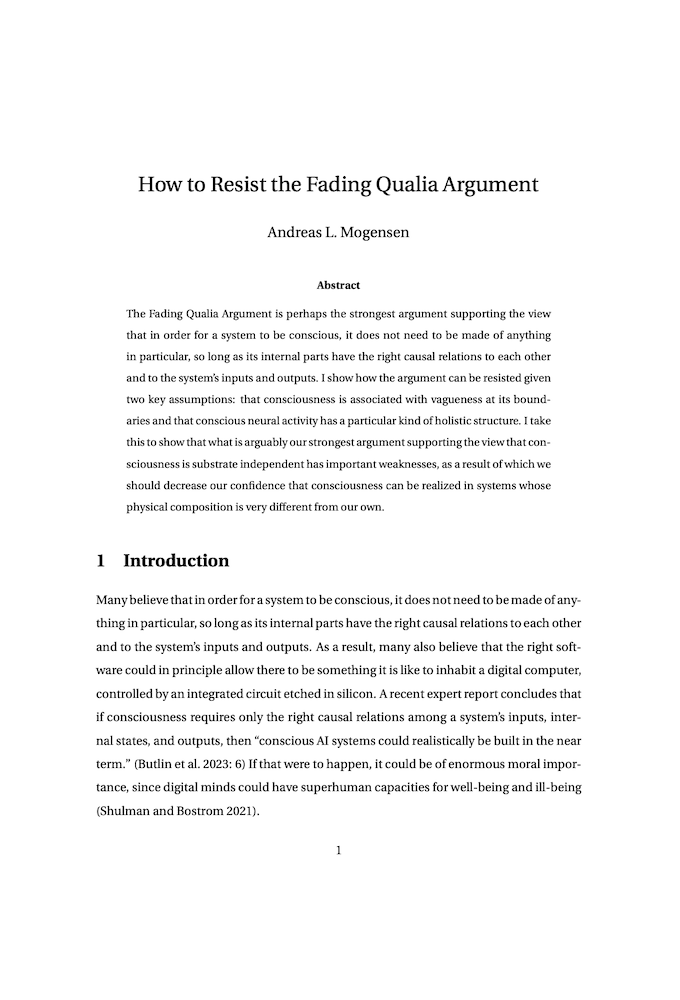How to resist the Fading Qualia Argument
Andreas Mogensen (Global Priorities Institute, University of Oxford)
GPI Working Paper No. 5-2024
The Fading Qualia Argument is perhaps the strongest argument supporting the view that in order for a system to be conscious, it does not need to be made of anything in particular, so long as its internal parts have the right causal relations to each other and to the system’s inputs and outputs. I show how the argument can be resisted given two key assumptions: that consciousness is associated with vagueness at its boundaries and that conscious neural activity has a particular kind of holistic structure. I take this to show that what is arguably our strongest argument supporting the view that consciousness is substrate independent has important weaknesses, as a result of which we should decrease our confidence that consciousness can be realized in systems whose physical composition is very different from our own.
Other working papers
Social Beneficence – Jacob Barrett (Global Priorities Institute, University of Oxford)
A background assumption in much contemporary political philosophy is that justice is the first virtue of social institutions, taking priority over other values such as beneficence. This assumption is typically treated as a methodological starting point, rather than as following from any particular moral or political theory. In this paper, I challenge this assumption.
On two arguments for Fanaticism – Jeffrey Sanford Russell (University of Southern California)
Should we make significant sacrifices to ever-so-slightly lower the chance of extremely bad outcomes, or to ever-so-slightly raise the chance of extremely good outcomes? Fanaticism says yes: for every bad outcome, there is a tiny chance of of extreme disaster that is even worse, and for every good outcome, there is a tiny chance of an enormous good that is even better.
Intergenerational experimentation and catastrophic risk – Fikri Pitsuwan (Center of Economic Research, ETH Zurich)
I study an intergenerational game in which each generation experiments on a risky technology that provides private benefits, but may also cause a temporary catastrophe. I find a folk-theorem-type result on which there is a continuum of equilibria. Compared to the socially optimal level, some equilibria exhibit too much, while others too little, experimentation. The reason is that the payoff externality causes preemptive experimentation, while the informational externality leads to more caution…

